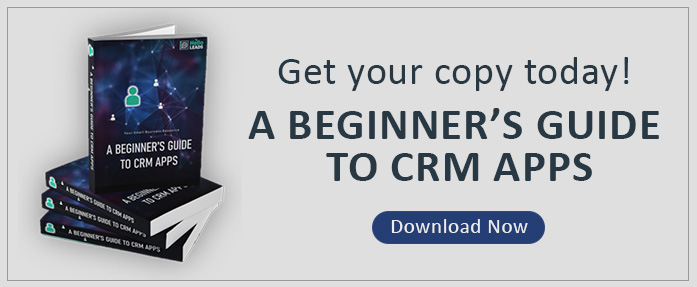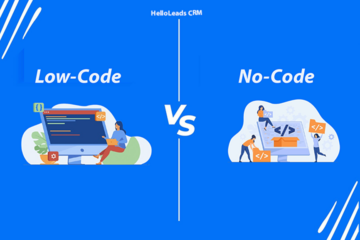
Managing leads and customers using a CRM tool is vital for every organization, especially start-ups as they need to handle a new influx of customers. For a start-up to stay active and move fast, sales persons need a single efficient tool that saves time and helps them to focus more on sales.
A Sales CRM is the right tool to boost productivity among sales persons, keep all information regarding prospects in a central location, help your team close more deals and foster important business relationships. With an effective and best-fit CRM, your start-up can scale to greater heights.
In this small business guide, we will walk you through the benefits of CRM for start-ups, what you need to look for in a CRM for start-ups and what start-up problems can a CRM system solve.
Benefits of CRM for start-ups
A CRM software allows you to improve your existing sales processes, by providing a platform for your sales team to organize and manage leads & customer data, qualify, track conversations with them, generate reports and save time in clerical work.
CRM system facilitates optimization marketing by enabling you to understand the behaviors and requirements of your existing customer which can feed valuable inputs to your marketing strategy to generate new leads and customers. CRM makes it easy to stay connected with your customers and maintain a positive and proactive relationship.
CRM for start-ups – What you need to look for:
1. Simple and easy to use interface
A good CRM should be simple and easy to use so that the sales managers and sales force get trained in just a few hours. A CRM should provide the lead management solution for the sales team for on-the-go use. So, picking up a CRM which has an intuitive user interface, that you and your sales team can easily learn and start using for everyday sales activities, right away, without spending days and weeks for on-boarding and training is essential.
2. Automation

The ultimate motivation for any small business to go for a CRM is to automate the process of gathering leads from various lead generation sources. Collecting and storing leads in an organized fashion is the base for a successful sales strategy and CRMs can do it automatically. Hence start-ups or growing small businesses must look for a CRM which has functionalities to collect leads from different lead generation sources like Facebook lead ad campaigns, website forms, or WhatsApp messages.
3. Team Management
A CRM should help you guide your teams and set meaningful objectives for your salespeople. The CRM should have the feature(s) to instantly connect with your sales team members through WhatsApp, SMS, email, and phone calls. A CRM should be able to track your sales team’s performance using real-time customer analytics. A CRM should collaborate with your team to track whether daily sales happened or not and who (salesperson) is in connection with whom (lead) and who is performing well on a daily basis.
4. Ability to contact leads quickly
The CRM for a start-up should have the facility to connect with your leads and customers easily with a single click and the ability to store messaging templates. You cannot keep typing messages whenever you need to connect with your leads. Your CRM must have the ability to store templates and send them to desired leads in just a click. In addition to connecting with leads, it must also have the option to log that particular conversation.
5. Appointment / Follow-up reminders or alarms
Follow-up is critical and vital in every organization to keep your lead & customers aware that you care for them. Forgetting to follow up is the biggest reason most sales qualified leads do not get converted. As a business owner or sales manager, you are incredibly busy and multi-tasking all the time and you can easily miss following up with your leads.
Without a tool or a system, the chance of missing to follow-up becomes more probable and that is going to cost you a lot.
In any business, engaging with the leads at regular intervals helps you to maintain your customer base and those customers will become your ambassador to spread the word about your business. Any CRM must have the ability to schedule follow-up reminders with specific notes for that follow-up so that it makes it easy for salesmen to keep track of the conversation.
A follow-up call or a follow-up email at the right time will increase the chance of closing a deal faster.
6. Custom fields and custom qualifiers
Custom fields are necessary to optimize segmentation and record as much information as possible for you to have a more detailed MIS (management information systems) of your customer list. Custom fields or custom qualifiers help you to describe your leads better and help you to meet your business-specific needs. Use custom fields or custom qualifiers to enrich your lead or customer data.
7. Sales conversion reporting

With visual reporting, sales reports provide exhaustive views of where your leads come from, who your best customers are, sales pipeline pain points, customer motivation for purchasing from you, and much more. Metrics like number of emails sent, quota attainment, number of meetings, and type of deals closed can also be tracked.
CRM helps in improving the sales conversions by having all leads in one place, all conversations for a lead in one place, and fail-safe follow-ups.
Whether you are a sales manager or a small business entrepreneur, you need to measure and stay on top of sales stats so that you take quick actions and right decisions to move forward in the direction of your goals.
8. Sales forecasting
With visual reporting, you can forecast your sales accurately by answering questions like:
What is your stage-to-stage conversion rate?
How many open deals do we currently have?
Where to find our highly valuable leads?
How successfully do we attract new leads? The answers to these questions help you forecast future sales and help to plan your sales activities to maximize results.
What Start-up problems can a CRM System solve?
CRM software can solve several business problems. A few of them are:
1. Irregular workflows
Organizational information is often fragmented and not accessible. This is why lots of lead and customer data stays ideal. The greatest benefit of a CRM for start-ups is its central data access point. It can also update customer data with ease. This results in staying updated on all sales information. These factors make a simplified, organized, and efficient workflow.
2. Limitation in access to lead/ customer data
In a small business, bringing all your team members to a single platform and making everyone get immediate access to lead data, customer data and analytics is a key factor for sales success. The CRM, you are thinking of, should do this, Additionally, the CRM should provide an overview of sales team performance and this can help while monitoring every team member’s activity and measuring their performance.
A CRM software allows adding leads manually or automating using Lead forms, adding from Phone contacts, or scanning business cards. You can also integrate website enquires or Facebook ads and make leads flow automatically into your CRM account.
3. Improper management of sales team
Sales management involves a wide variety of actions necessary to successfully build and manage a sales operation from developing a team to achieving sales goals and adopting tactics to meet them.
Sales management resources like CRM can help you simplify your work, execute tasks and duties more efficiently, have a greater impact on your team, and grow as a leader. CRM provides you an option to capture, track and record lead information in a systematic manner. It assists sales teams in increasing conversion rates.
4. Irregular follow-ups
A CRM lets you to do regular and rigorous follow-ups with your leads and prospects. CRM also allows you to automatically set follow-up dates for your leads using recursive follow-ups. Thus, a CRM helps to stay on top of your follow-ups with the help of on-time follow-up reminders on the phone which can be set weekly, monthly or quarterly.
5. Not tracking record of conversations
A CRM lets you stay on top of your conversation history for improved sales conversions. Keep track of what you and your sales team have communicated with the customer in real-time. Capture or record your conversation or email details shared with your customer.
You are also notified of every comment posted by you or your sales team via email. Using ‘Comments’ and ‘Attaching File’ options in your CRM, you can update and track all your conversation with the customer and details (for example, a quotation). This feature helps you assign the lead to your sales team accordingly so they can continue to follow up periodically.
6. Less improvement in sales
CRM helps you in improving your sales conversions by having all leads in one place, and all conversations for a lead in one place. CRM assists the sales team to document customers, communicating with them, and tracking the sales improvements. And, whenever management needs to review the progress of the sale, the sales team can easily fetch the report from the CRM and present them.
7. Not providing personalized customer service
Customer service can be clearly expressed by the support you provide your customers before and after they use your product or service. Moreover, it is a time-based and sensitive activity that requires technical support and building a strong knowledge base. There are multiple ways of providing customer service. These include support over the phone calls, WhatsApp messages, or email. Customer service is definitely one of the key components for developing brand loyalty and awareness which can be improved upon using CRM for start-ups.
Having CRM software for your start-up can save several hours every day by automating administrative tasks in collecting leads, sharing leads with your sales force and tracking the overall sales process. Investing in a good CRM tool makes a lot of sense and adds great value to your start-up business. A powerful CRM can enhance your business productivity and scale business operations.












